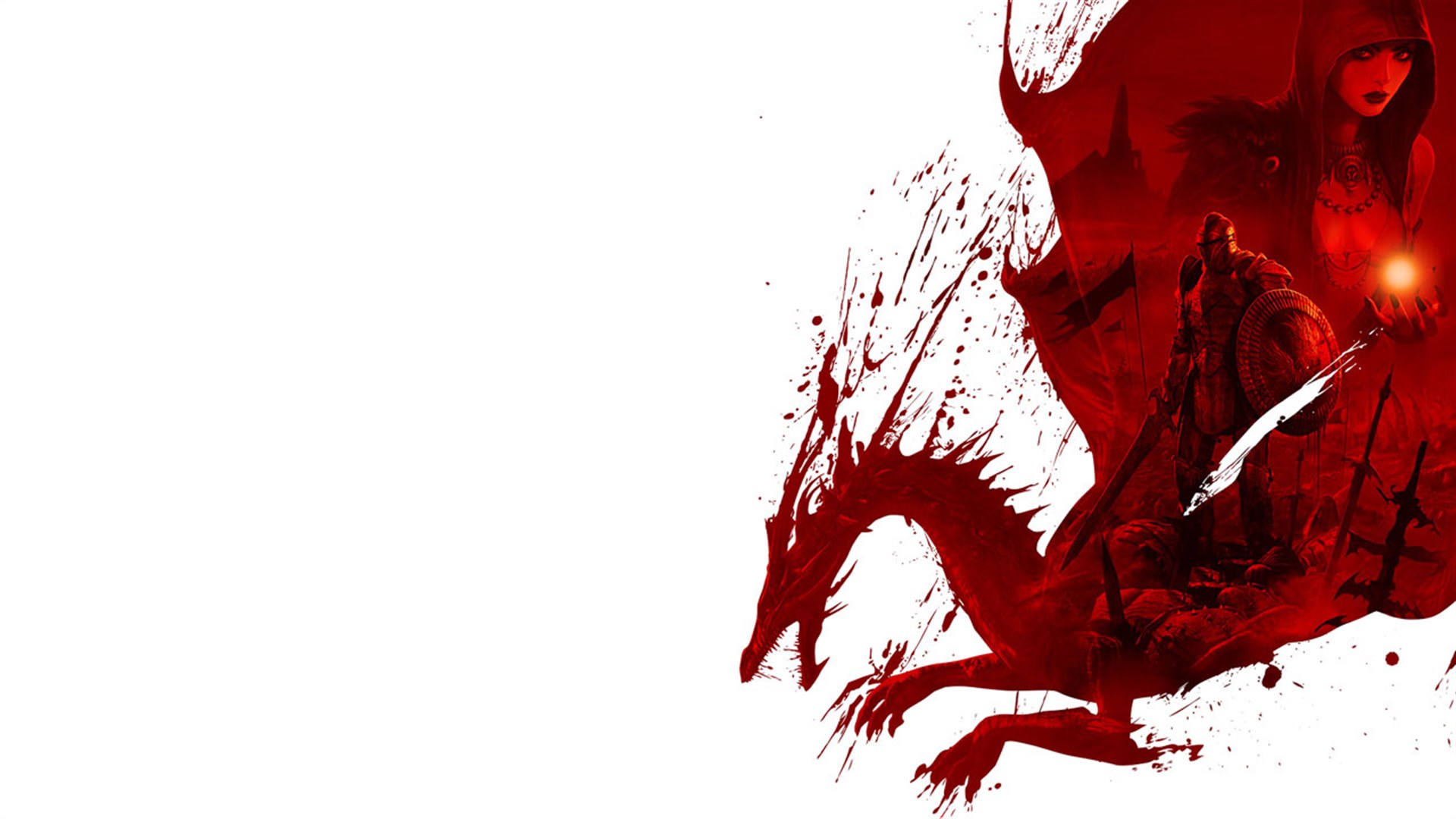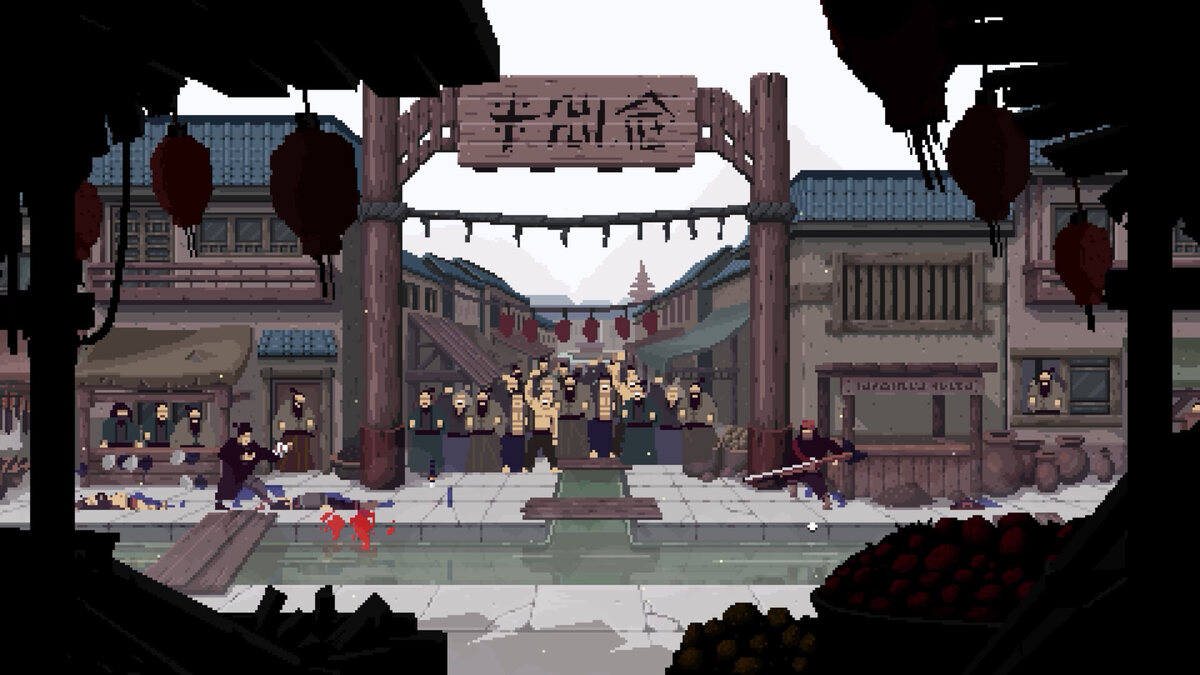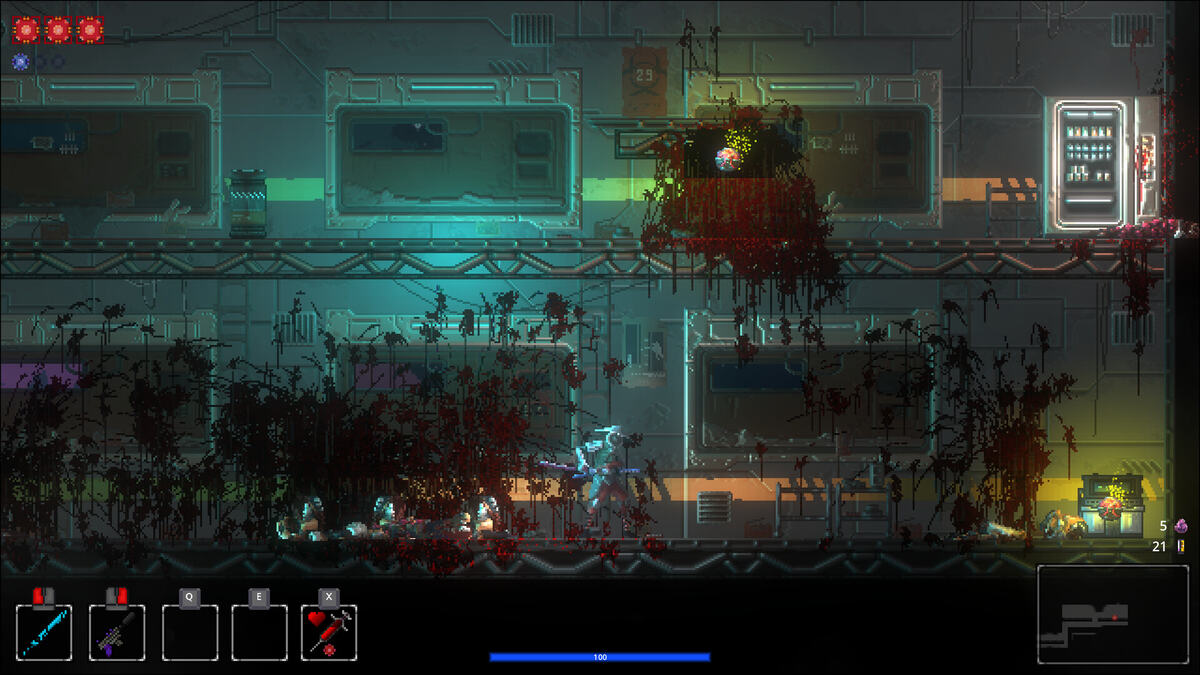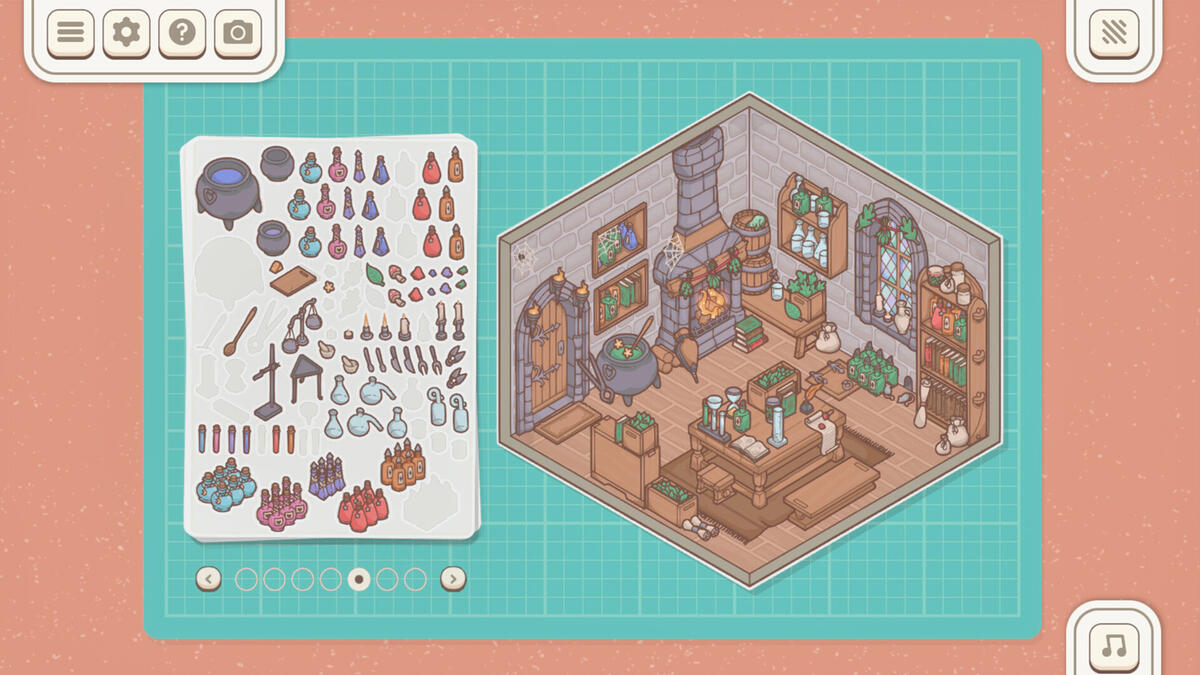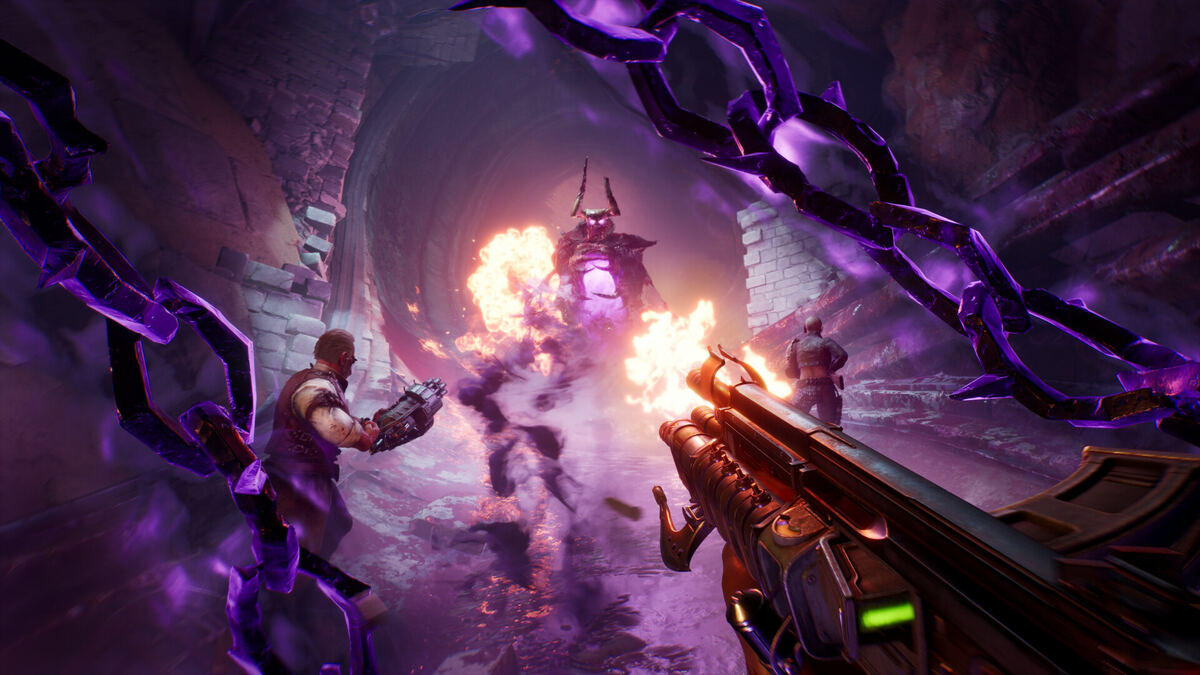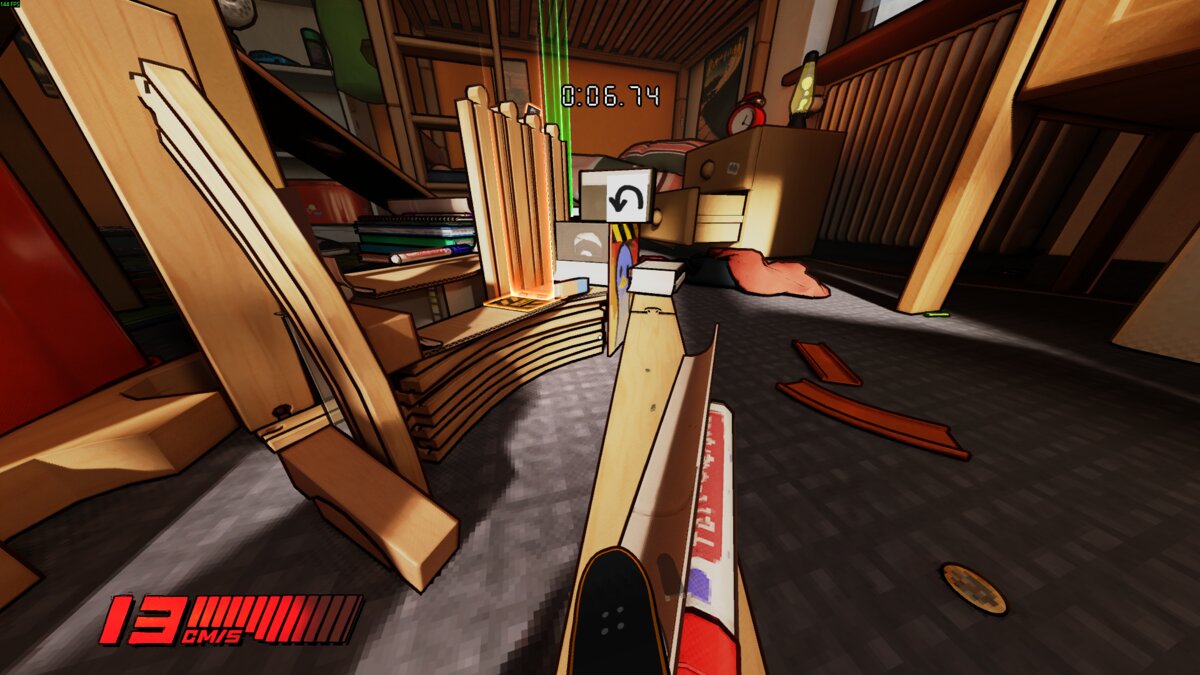You can trust VideoGamer. Our team of gaming experts spend hours testing and reviewing the latest games, to ensure you're reading the most comprehensive guide possible. Rest assured, all imagery and advice is unique and original. Check out how we test and review games here
As I sit down for my interview with BioWare’s Greg Zeschuk, one half of “the doctors” as they’re called by EA staff, he asks me if I’ve played the Xbox 360 version of Dragon Age: Origins, the spiritual successor to the company’s own Baldur’s Gate series, which is running on the other side of the room. Yes, I reply. Briefly.
It’s an understatement as epic as the low fantasy RPG has the potential to be. A single boss fight is all that’s on offer: four party members versus a single ogre at the top of a tower. It’s over in the blink of an eye. I’m encouraged to try it on the medium difficulty. It’s again over in the blink of an eye. I try it on hard. I die. I don’t bother with the Nightmare difficulty.
Greg explains before I’ve had a chance to ask: “Obviously what you’re seeing right now, we set it up as a pretty thin slice, but it’s to give you a clear indication that yes there is a console version that exists and it’s coming along well, it looks good and all that stuff.” Pretty thin slice indeed.
So there you go. Job done. The 360 version of Dragon Age: Origins does exist, it does look like it’s coming along well, and it does look good (although not as good as the PC version). End of preview.
Not so fast. You don’t think I’ll leave it there do you? Of course not. I’m a professional. I spend my time with that boss fight making more notes than a journalist reporting on a gruesome court case. I find stuff out. Some stuff I already know, some stuff you probably already know, and hopefully, with some luck, some stuff neither of us know.
First, the stuff you already know. Dragon Age: Origins is BioWare’s return to its roots. It’s low fantasy (the opposite of high fantasy: gritty, dark, fewer pretentious elves, Scottish dwarves, cockney goblins and magical wizards). It’s gruesome, with blood and limbs and bits of things all over the place. And it’s sexy, in a “will you keep me warm in my tent tonight?” way – cue bonking cutscene. It’s all of these things, and it’s pretty interesting, too.
The game contains six playable Origins stories: Human Noble, City Elf, Dwarf Commoner, Dwarf Noble, Mage and Dalish Elf – meaning your first few hours of the game will be an entirely different experience depending on the Origin story selected. The point is to become a Grey Warden: warrior legends who sacrificed everything to drive back the darkspawn – the game’s evil demon-like baddies – years ago. The darkspawn is back, so the Grey Wardens must once again mobilise.
I’m playing a sexy female Mage called Solona, who’s already completed her Origins story, accumulating three party members along the way. Templar Alistair is my tank, a friend who accompanied me during The Harrowing – the ritual that marked my transition from apprentice to fully-fledged mage. I’ve also got a nameless Soldier and Tower Guard at my disposal – both will bugger off at the end of this battle. You’ll pick up around a dozen characters during the game, all told.
This boss fight takes place about four hours into the game, in what’s called the Tower of Ishal. This is your first job as a Grey Warden. King Cailan Theirin and the simply-named Duncan, leader of the Grey Wardens, want you to light a beacon atop the tower in order to signal additional forces to rush the darkspawn at their flank in the Battle of Ostagar, an almighty scrap that rages outside.
I’m right in the thick of it, the camera a decent distance away from the action so I can see the position of everyone in my party as well as the ogre itself. The first thing I notice is that BioWare’s clearly been influenced by its own good work with Mass Effect’s controls. PC tooltips are converted into short cuts, mapped to different slots on the X, Y and B buttons (the controls will work the same on the PS3 version). You’ll have your most used spells or abilities mapped to these buttons, but a press of the left trigger brings up a secondary set of mapped abilities, so you’re able to quickly select from six different skills in real-time without a break in combat.
Talking of breaks, one of the hallmarks of the Baldur’s Gate series was the ability to freeze the action and dish out commands in a real-time/turn-based hybrid fashion. Dragon Age is the same, and the way it’s handled on the console versions is through the left and right triggers. A ring is triggered by pressing the right trigger. From there you’re able to select, with a press of the A button, specific abilities. There’s a secondary ring, too, from which you’re able to select from further talents. It’s a system that does a decent job of capturing the spirit of the game’s predecessors.
Still, anyone even remotely familiar with Mass Effect will be able to jump straight into Dragon Age: Origins and find they’re able to play the game adequately. It’s simple, quick and easy, which is great. I’m hanging back with my Mage and dishing out ranged damage as if I’ve been doing it on console for years, as my AI-controlled tanks soak up the ogre’s powerful close range attacks. I’m able to heal efficiently, too. As every caster knows, keeping a keen eye on friendly health bars is important, and using the d-pad to switch between targets proves an effective control method for keeping everyone alive.
What you couldn’t do in Mass Effect was take control of your other party members. You can in Dragon Age. You’re able to cycle through party members with the shoulder buttons – when you do the camera speeds over to the character in question, providing a new third-person perspective from which you can micro-manage difficult encounters effectively. The point to make here is that, with superb Mass Effect-inspired controls, Dragon Age: Origins has every chance of being as fluid and intuitive on console as it does on the PC.
A nosey around the game’s menu screens reveals more interesting titbits. Levelling is experience point and tech tree based, as is RPG tradition. There’s a codex, which includes a bestiary (I typed that carefully) and detail on magic and religion and culture and history. There’s a character record sheet – very old school RPG – an equipment screen and pages for skills and talents/spells. My Mage’s talents are divided into Primal, Creation, Spirit and Entropy, which all sound lovely.
So far so good then, despite the ‘over in the blink of an eye’ feel to proceedings. Greg’s right – the console version of Dragon Age: Origins looks like it’s coming along well. Everything I’ve seen reinforces the positive opinion I had following the game’s showing at E3, where EA showed me how you’ll be able to cheat on your girlfriend, have sex in a tent (BioWare is still working out whether the game will contain full-frontal nudity) then face the music the morning after. The game is, in fact, doing some very interesting things with character relationships – piss your party members off and they’ll hate you, perhaps even leave your party. If you really get on their tits, they might even try to kill you.
Countering that, however, is Dragon Age’s somewhat archaic, old-school PC RPG feel. Your main character doesn’t have any voice over at all – conversation is driven by the selection of various lines of text. It’s a curious design decision in the post-Mass Effect world. It’s even more curious when you consider Mass Effect, which is perhaps the most cinematic RPG ever created, is also a BioWare game.
And the graphics aren’t spectacular, either. This may be a grossly personal opinion here, but Dragon Age: Origins looks almost dated. Mass Effect, a game that simply blew my socks off in every department, looks, to me, much better, and it’ll be two years old by the time Dragon Age comes out. Perhaps it’s a deliberate approach on BioWare’s part – like the old school text dialogue a nod to Baldur’s Gate and its low fantasy PC roots.
Whatever the case, BioWare’s got so many great RPGs under its belt, as Neon pointed out in our last preview of the game, that Dragon Age: Origins should be nothing less than spectacular. Will we play it on console over the PC version? Perhaps not, but if your PC isn’t up to snuff, feel safe that you won’t get a dumbed down experience.
Dragon Age: Origins is due out on PC, Xbox 360 and PS3 on October 20.
Dragon Age: Origins
- Platform(s): macOS, PC, PlayStation 3, Xbox 360, Xbox One
- Genre(s): RPG
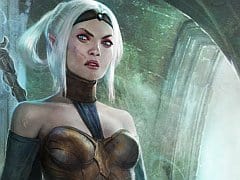
/https://oimg.videogamer.com/images/092e/dragon_age_72.jpg)
/https://oimg.videogamer.com/images/78b0/dragon_age_69.jpg)
/https://oimg.videogamer.com/images/7461/dragon_age_64.jpg)
